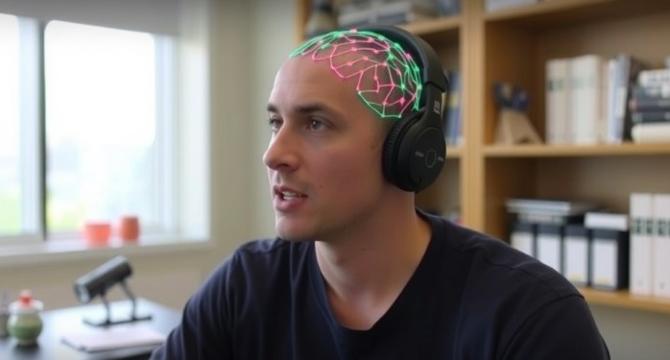Bioengineer
2d
149

Image Credit: Bioengineer
Neuroprosthesis Transforms Thoughts into Natural Speech
- Researchers from UC Berkeley and UCSF have developed a neuroprosthesis that restores naturalistic speech for those with severe paralysis.
- Their innovative streaming approach reduces latency by translating brain signals into audible speech in near real time.
- The technology, similar to virtual assistants like Alexa and Siri, enables decoding neural data to produce natural speech instantly.
- This advancement enhances communication for individuals with speech-affecting paralysis, offering practical real-world applications.
- The neuroprosthesis integrates with various brain sensing interfaces, benefiting multiple neuroprosthetic technologies.
- A protocol involving silent verbalization and AI synthesis enables decoding neural activity into comprehensible speech.
- The researchers achieved a significant reduction in latency, enabling instant generation of audible sound aligned with speech attempts.
- Testing with rare words demonstrated the system's ability to decode beyond its training dataset effectively.
- Users of the technology reported a heightened sense of conscious control and embodiment over speech production.
- Future enhancements aim to optimize speech generation speed and quality, enriching output expressiveness for naturalistic speech.
Read Full Article
8 Likes
For uninterrupted reading, download the app